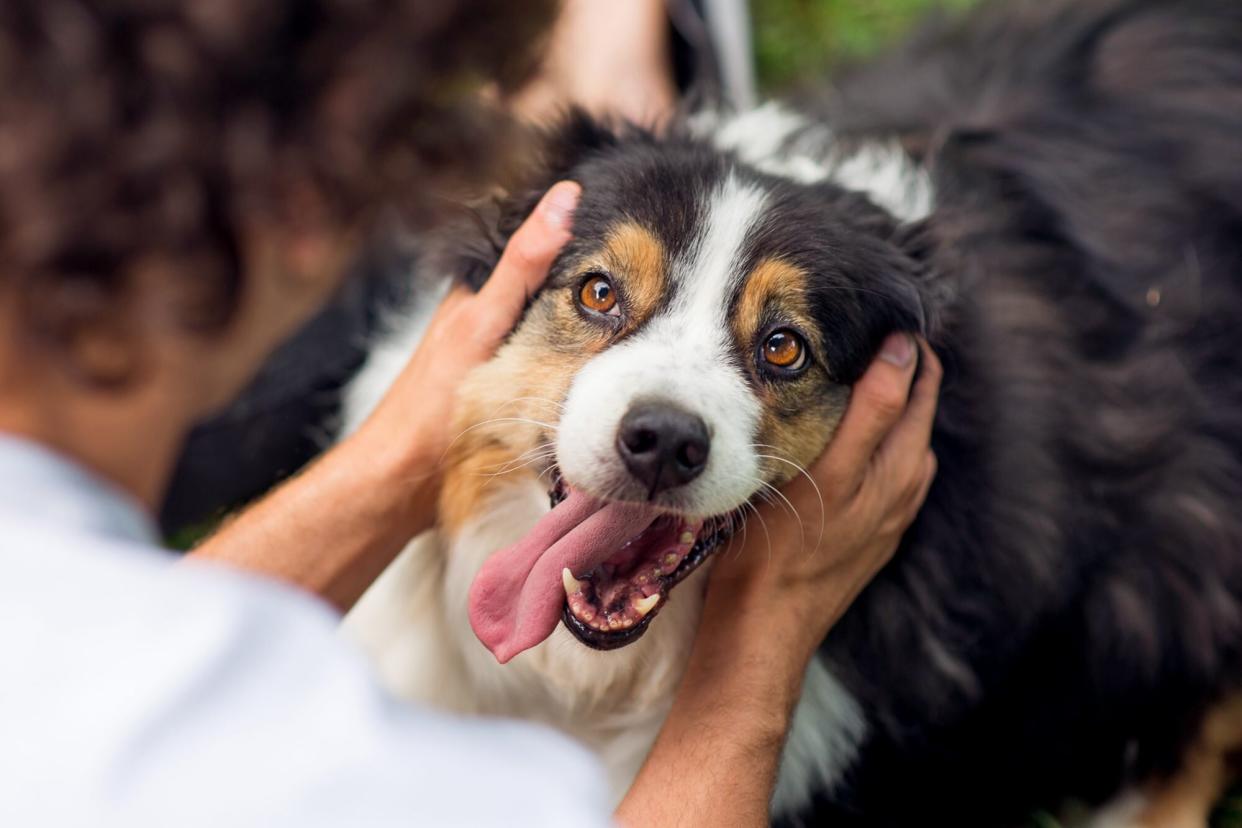What You Should Know About Taurine Supplements for Dogs

LittleCityLifestylePhotography / Getty
It's no secret that pets are a part of our family. And as a dog mom or a dad, you'd do anything to keep your furry one safe, happy, and healthy. If your most recent research on the latest and greatest developments in dog and cat health has introduced you to vitamins and supplements like taurine, you may wonder what all of the buzz about. Does your furball need taurine in his diet? And what is taurine exactly? Can pets have too much? And what are the best sources?
We checked with veterinarians to get a better understanding about taurine for dogs and whether it's a must-have in their supplement routine. Read on to find out more about this amino acid and whether or not it's right for your pet.
Do Dogs Need Taurine in Their Diet?
First things first, what is taurine? Jo Myers, DVM, a veterinary expert for JustAnswer.com explains taurine is one type of amino acid. Amino acids are the building blocks of proteins, both for humans and our pets. All of the different proteins in the body—enzymes, hormones, connective tissues, and so on—are made up of 22 amino acids. Myers explains that some of these are essential since our diets are the only way to get those. Others are labeled as non-essential since the body can manufacturer them for itself.
For dogs, taurine is considered to be a conditionally non-essential amino acid. "That means a dog does not have to consume a certain amount of the nutrient taurine; he can make his own as long as he is eating the foods that contain the ingredients he needs to make it for himself," Myers adds.
Many pet parents may wonder if they should add a taurine suupplement to their dog's food, but generally speaking, it's not necessary, says Maria Brömme, DVM, a veterinary recruitment coordinator for Veterinarians International. "Feeding your dog a balanced, high-quality, and evidence-based diet should negate the need for taurine supplementation," she says. However, if pet owners are feeding a non-traditional diet and they're worried about taurine levels, they can get their pet's taurine levels tested by a veterinarian. Any diet changes should always be signed off on by your vet first.
Potential Side Effects of Taurine in Dogs
If you do decide to give your pet a taurine supplement, are you putting them at risk of overdose? Gary Richter, DVM, a veterinarian and founder of Ultimate Pet Nutrition, says functionally, no. If they don't need it, their bodies will break down any extra and use it for something else. He also notes it is not recommended to supplement taurine in growing puppies and kittens. "While there really isn't a known upper limit to supplementing taurine, too much can potentially make an animal feel sick. If a pet owner feels their pet may benefit from taurine supplementation, they should consult with their veterinarian to determine the appropriate dose," he adds.
Also, it's important to remember that taurine is considered non-toxic and has a very high safe upper limit, according to Brömme, and she says there are no known side effects of taurine in dogs or cats. "An acute toxicity may be seen at a dose of 5g/kg, meaning a 30-kg Labrador would need to ingest 150g of taurine to cause concern," she adds.
Sources of Taurine for Dogs
If you want to make sure your dog is receiving enough of this amino acid to keep them strong and healthy, take a hard look at their food. Myers explains that taurine can be found in large amounts in meat proteins (beef, poultry, fish, and pork) and eggs.
You shouldn't need to whip up a side plate for your dog to ensure they're getting enough taurine. Myers says that any commercially prepared dog food with an AAFCO label on it saying it is 'nutritionally complete' will provide all the taurine and/or materials your dog's body needs to make its own taurine.
How to Prevent Taurine Deficiency in Dogs
Brömme says feeding commercial dog diets developed by companies using evidence-based nutritional research guarantees that their product's contents will prevent taurine deficiencies in healthy pets. "In recent years, dilated cardiomyopathy (DCM) has been linked to a taurine deficiency in dogs being fed non-traditional diets such as legume-rich and grain-free diets, homemade, vegetarian, or vegan diets," she says. In this case, you might want to consider talking with your vet to ensure they are not only getting enough taurine, but other vitamins and minerals, too.
Also, keep your dog's breed in mind. Brömme says in recent years, golden retrievers have been over-represented in reported cases of taurine deficiency and nutritionally-mediated DCM. "There may be a reporting bias in golden retrievers due to increased awareness and breed-specific social media groups," she continues. "DCM is also seen in American cocker spaniels with taurine deficiency. Other breeds reported to the FDA for DCM associated with taurine deficiency include Labrador retrievers, Great Danes, German shepherds, and Doberman pinschers."
So as with all additions to your pet's diet, it's best to check with a health professional before adding in a new supplement to their food. Your vet will have a better idea of whether or not your dog needs taurine, and if so, help you pick a method for introducing it into their meals that works best for you and your pooch.

